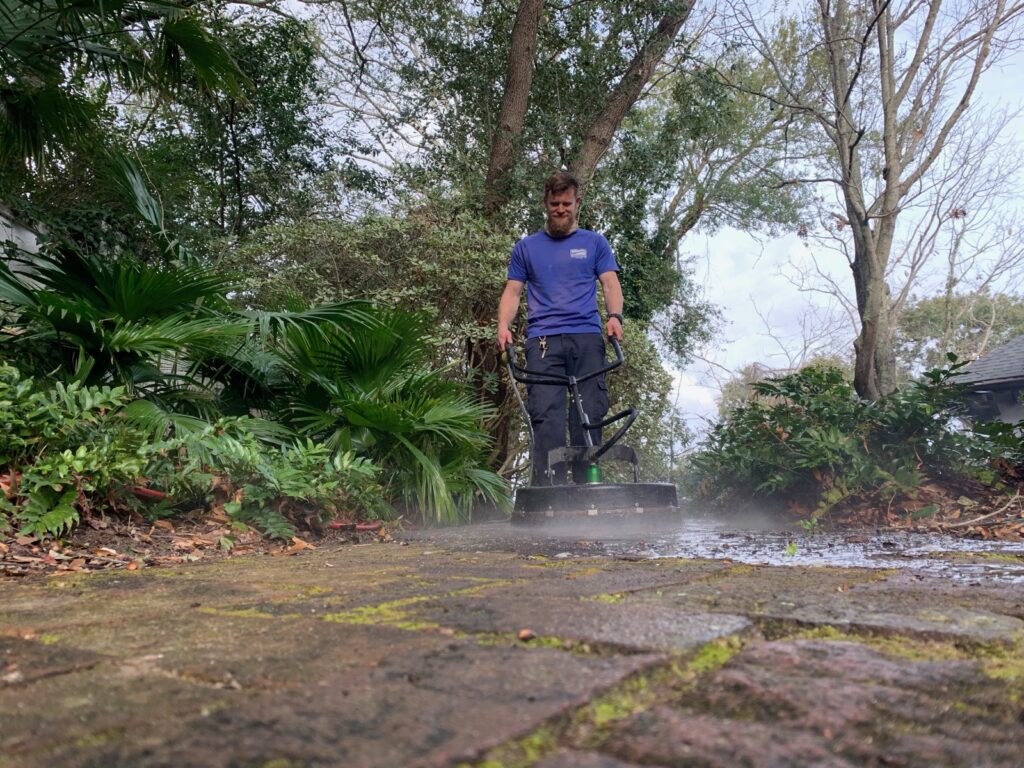Pressure washing is often regarded as a straightforward task, but there's far more to it than meets the eye. Offstage, a pressure washer carefully prepares for each job, ensuring that all surfaces is treated with attention and skill. Whether it's restoring the liveliness of a forgotten driveway or reclaiming the original charm of a aging deck, pressure washing plays a vital role in preserving the aesthetic and integrity of our properties.
In this article, we will explore a day in the life of a pressure washer and dive into the various aspects of this robust cleaning technique. From comprehending the differences between pressure washing and gentle washing to learning the best practices for properly removing mold, we will provide you with a detailed guide. Whether you're a resident looking to boost curb appeal or a business owner aiming to refresh your storefront's image, comprehending pressure washing can help you make informed decisions about maintaining your property.
Grasping Pressure Washing

Power washing is a effective cleaning method that uses pressurized water to dislodge soil, filth, fungus, and other contaminants from multiple surfaces. This technique is especially beneficial for exterior surfaces such as driveways, sidewalks, decks, and buildings. By directing water at elevated pressure through a sprayer, the cleaning process can effectively remove even the most resilient stains, making it a favored choice for residential maintenance.
One crucial element of pressure washing is understanding its unique differences from soft washing. While pressure washing employs a high-pressure approach appropriate for sturdy surfaces like asphalt, soft washing applies a gentler spray combined with detergents for more delicate areas such as rooftops and colored exteriors. Knowing when to use each method is essential to avoid injury and to achieve best results.
The gains of pressure washing extend beyond mere appearance. By frequently cleaning your property, you can prevent the buildup of harmful substances like fungus and filth, which can result in deterioration over time. Additionally, pressure washing enhances the attractiveness of your home, making it more appealing. For business properties, keeping a tidy exterior can significantly enhance customer impressions, demonstrating a commitment to hygiene and quality.
Benefits of Expert Power Washing
Expert power washing solutions provide a degree of knowledge that guarantees your home's exterior spaces are cleaned thoroughly and without harm. Certified technicians have extensive knowledge of power washing practices and the appropriate equipment for various materials. They can recognize the right pressure mechanisms and cleaning solutions to avoid damage and secure thorough cleaning, which is particularly vital for sensitive surfaces such as overheads and decks.
Another major advantage of contracting experts is the hours and effort saved. Pressure washing can be a strenuous task that necessitates not only physical work but also organization and post-cleaning. By outsourcing this task, property owners can concentrate on their daily responsibilities while experts efficiently handle the task. Moreover, professional solutions often come furnished with high-grade equipment that delivers exceptional results compared to regular consumer-grade equipment.
Finally, routine expert pressure washing can dramatically enhance your building’s curb appeal and worth. By removing unsightly dirt, mold, and mildew, your home looks cleaner and more appealing. This is especially helpful if you’re planning to market your home, as first impressions matter. Maintaining a neat exterior not only boosts appearance appeal but also helps in maintaining the surfaces, ultimately saving money on potential maintenance or refurbishment in the long run.
Selecting the Appropriate Pressure Washing Method
When it comes to pressure washing, determining the right method for your individual needs is vital for reaching optimal results without incurring damage. For residential cleaning, high-pressure washing is often advantageous for surfaces like driveways and sidewalks, where tough stains and dirt collect. However, for more fragile areas such as roofs or painted surfaces, soft washing is recommended. Soft washing uses low pressure combined with specialized cleaning solutions to safely remove grime and algae without jeopardizing damage to the underlying materials.
Consider the type of surface you are washing to determine the best method. Concrete and brick surfaces can generally withstand high pressure, making them ideal candidates for traditional pressure washing. On https://valleywashpros.com/ , wood decks and fences demand a more gentle approach. The nuances between each surface should guide your choice, ensuring that you protect the integrity of the surfaces while achieving the desired cleanliness.
In addition, consider whether you will be taking on the job yourself or hiring a professional. If you are unfamiliar, understanding the limitations of both pressure washing and soft washing can prevent costly mistakes. Professionals are equipped with the correct tools and expertise to deal with various surfaces correctly. Ultimately, the choice between DIY and professional pressure washing hinges on your certainty in properly executing the job and the unique needs of your property.
